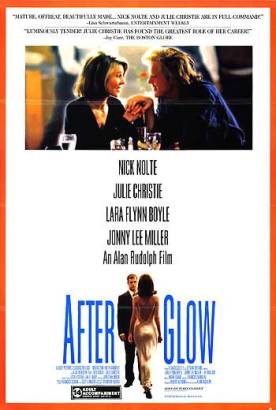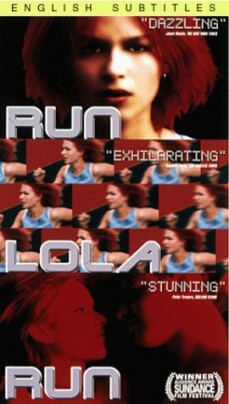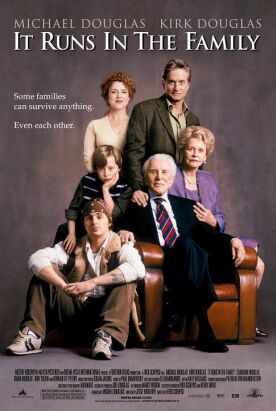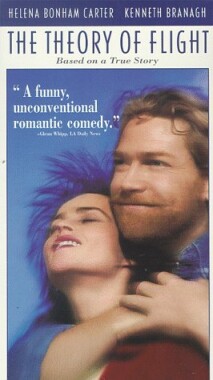Hercules
Perhaps the most telling moment in
Disney’s Hercules (directed by
John Musker and Ron Clements) the latest in that
company’s long succession of dreadful,
vulgar and philistine cartoon movies, comes near the beginning with a musical
recapitulation of Greek mythology (most of it garbled or deliberately altered to
suit the use that Disney wants to make of it). This is rendered by dusky maidens
in Grecian style gowns, supposedly come to life from a Greek vase to sing a
gospel-style number whose refrain is
“And
that’s the Gospel
truth” —which seems to be the hip,
postmodern way of saying, “I just made
it up.” It seems natural to believe
that the Gospel itself would be, for these Disney redactors and musicians, true
in exactly the same sense. Truth itself is a joke for them, which is why they
have not the slightest compunction about making the radical alterations in the
story they are telling for no other purpose than flattering the ignorance and
self-satisfaction of their audience.
For even worse than the film’s
utter disrespect for its ancient sources is its alteration of them entirely for
the purpose of making
“Herc”
and his gal-pal
“Meg”
(i.e. Megara) and his manager and trainer
“Phil”
(i.e. Philoctetes) into a particularly mindless bunch of late 20th century
American pop-culture addicts. The assumption here—also to be found in The
Little Mermaid, Beauty and the Beast, Aladdin, Pocahontas and The
Hunchback of Notre Dame— is that no matter how exotic the material,
everyone in the world, and everyone in history, is reducible to a late 20th
century, overindulged American adolescent—someone exactly, in short, like the
film’s intended audience—only with a
few inexplicable affectations of difference. This is the very definition of
philistinism: the inability to imagine any worldview other than
one’s own.
More deeply depressing than the thing itself, however, is the fact that we as
a culture seem not to care about exposing our children to such intellectual
toxicity. With paternal pride I report my own 11 year old
son’s judgment on the film which, he
said, “mixed up the old stuff and the
new stuff as if they were the same,”
but this should not be difficult to understand. Children are not incapable of
learning, along with the lesson that people in history, like people in other
countries, were or are different from themselves, a certain amount of humility
and curiosity, yet Disney wants them to understand not so much that the ancient
Greeks were spoiled little consumerists like themselves, talking in slang and
high fiving each other (only the very stupidest among them will believe this) as
that it doesn’t matter what they
really were—only that being a spoiled little consumerist and hip to fashion,
the media and popular entertainment are all that counts in the world.
This phenomenon of popular culture is not unconnected with the fact that our
schools have ceased to bother teaching children about other cultures (in spite
of—or perhaps because of—the vogue for
“multiculturalism” )—or
even about our own when it included something other than postmodern playfulness.
In the beginning, Charlton Heston’s
voiceover is interrupted by the gospel gals saying that he is making the story
“sound like Greek
tragedy.” Heaven forbid! He turns the
narration over to them by saying, “You
go, girls.” Later on Herc and
Meg’s first date, the former exclaims:
“What a day: first that restaurant by
the bay, then the play. That Oedipus, boy was that something! And I thought I
had problems!” Of course, tragedy here
is also reduced to a joke. All depiction of real sorrow, loss or pain (like
reality generally) is banished from precincts haunted by the evil Disney
spirit.
This is made apparent at the climax of the film when it seems that the
beauteous Meg has saved both Herc and the world by giving up her own life, and
Phil tells the hero:
“There’s
some things you just can’t
change.”
“Oh yes I
can!” says Hercules—and so, of
course, he succeeds in bringing her back from the grave. As in the case of Wile
E. Coyote and others who are forever blowing themselves up, death itself has no
dominion in the cartoon world.
The film attempts to disarm us by making fun of itself and Disney. Pain and
Panic are the comic sidekicks of the bad guy
“Hades”
(evil but cute!) and are described as
“a couple of rodents looking for a
theme park.” The commercial boom when
Herc does become famous ( “From Zero to
Hero” as the song puts it), with the
merchandising of fast foods, action figures and sports sandals (Air Hercs), is
apparently meant to show that the Mouse can make a joke at his own expense—not
that the joke will cost the company a penny in its actual merchandising efforts.
But when Herc meets his
“famous”
father Zeus and brags that
“I’m
the most famous person in all Greece.
I’m an action
figure,” it also offers the Disney
moralists an opportunity to sell a classic bit of Disney sentimentality as Zeus
replies:
“I’m
afraid that being famous isn’t the
same as being a true hero.”
No kidding! Unfortunately, everything else in the film drives home an
opposite lesson. What being a true hero involves, according to Zeus, is
something vaguely to do with “looking
in your heart” —a heart which hitherto
has had nothing in it but the desire for adulation. Now, he apparently has the
chance to sacrifice his own life for the sake of his Meg, but that all turns out
to be a crock too. He is a god and therefore unkillable, so he gets back Meg
with no price to be paid, defeats
“Hades”
and the adulation (and presumably the big-time marketing) continues unabated.
Never mind, he made the sentimental gesture and so (Zeus tells him) he is now
“a true
hero.” Or at least as near to one as
we shall ever see in a Disney production.
Discover more from James Bowman
Subscribe to get the latest posts to your email.






